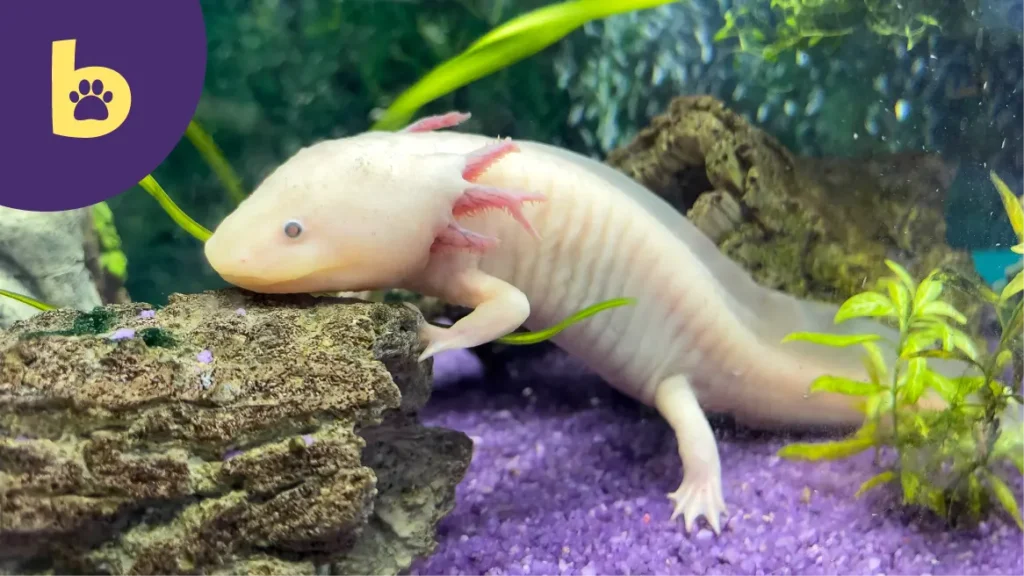Axolotls, those cute salamanders with feathery gills, can go without food for a while. Adult axolotls, the big ones that are at least 6 inches long, can usually last up to two weeks without eating. This is because they have a slow metabolism and can store energy for a while.
However, baby axolotls, the ones that are still growing, are not as tough. They need to eat more often and shouldn’t go without food for more than three days. This is because they’re using all that energy to grow up big and strong.
If you are going to leave your axolotl home alone for a few days, don’t worry too much. Adult axolotls should be fine. But if you have a baby axolotl, or if you’re worried about your axolotl for any other reason, it’s always a good idea to ask someone to check on them and feed them if needed.
Here is a table summarizing how long an axolotls can go without food based on their age
| Age | Maximum Time Without Food |
| Adult (6 inches or longer) | 2 weeks |
| Juvenile (2-6 inches) | 1 week |
| Larva (less than 2 inches) | Daily |
In addition to age, there are other factors that can affect how long an axolotl can go without food. These include:
- Health: Healthy axolotls are better able to withstand fasting than sick or injured axolotls.
- Water temperature: Axolotls have a lower metabolism in cooler water temperatures. This means that they can go for longer periods without food in cooler water.
- Stress: Stressed axolotls may not eat as much as they normally do. This can make them more susceptible to food deprivation.

If you are concerned about how long your axolotl can go without food, it is always best to err on the side of caution and feed them more often. You should also monitor your axolotl’s weight and behavior for any signs of malnutrition. If you notice that your axolotl is losing weight, becoming lethargic, or developing other health problems, you should increase their food intake or consult with a veterinarian.
How long can an axolotl go without eating?
Adult axolotls that are in good health can typically survive for up to two weeks without food. However, it is still best to feed them regularly to prevent them from losing weight or becoming malnourished. If you are going to be away from home for more than a few days, it is a good idea to have someone else feed your axolotl while you are gone.
Here are some additional things to keep in mind about axolotl fasting:
- If your axolotl is sick or stressed, it may not be able to go without food for as long.
- If your axolotl is pregnant or nursing, it must eat more often than usual.
- If you are unsure about how long your axolotl can go without food, it is always best to err on the side of caution and feed them more often.
If you have any concerns about your axolotl’s health, it is always best to consult a veterinarian. Just remember, axolotls are like any other pet. They need love, attention, and, of course, food!


![USA States Where It Is Legal to Own a Capybara [Complete List]](https://petsomebuzz.com/wp-content/uploads/2023/11/chilling-capybara-768x503.webp)